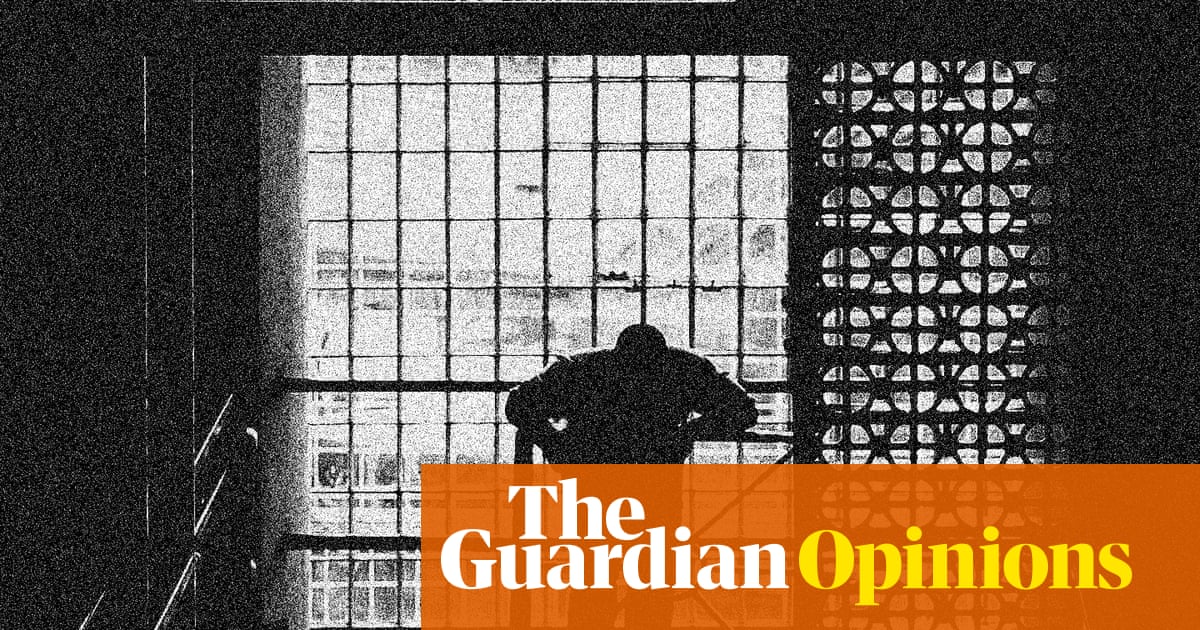There is no shortage of reasons to dislike and dismiss Robert Jenrick. He is, after all, the former immigration minister who ordered that a centre for unaccompanied child asylum-seekers paint over its murals of cartoon characters, lest the child refugees got the wrong idea and thought they were being welcomed and had at last reached a place of safety.
We certainly wouldn’t want to take lectures on law-breaking from Jenrick, given that the former housing secretary acted unlawfully in rushing through approval for a development by the Conservative donor Richard Desmond, thereby saving the onetime porn publisher more than £40m. Nor would he be our go-to guy on matters of ripping off the public, not after it was revealed in 2020 that he claimed £100,000 in expenses for a third home. To say nothing of his service in a Boris Johnson administration that happily funnelled at least £1bn of taxpayers’ money to assorted chancers lucky enough to have a friend in government, thereby securing for themselves a place in the VIP lane when it came to bidding for lucrative contracts making personal protective equipment or PPE.
All of that makes it tempting to wave aside Jenrick’s latest stunt, a video of himself challenging fare dodgers at a London Underground station, calling them “mate” and demanding that they go back and pay for their journey. The transparency of his motive only strengthens that impulse. He wants Kemi Badenoch’s job: we know that, because he tried to get it last time, when she defeated him.
What’s more, his pitch is that he will be the Tory leader who outflanks Reform UK on the right, nullifying that party’s threat by offering voters the same brew of nationalist populism they can get from Nigel Farage. That’s why he speaks so often, and so unbendingly, on immigration and why he includes an unexpected item in the list of menaces with which he closes the fare-dodging video: “It’s the same with bike theft, phone theft, tool theft, shoplifting, drugs in town centres, weird Turkish barber shops. It’s all chipping away at society.”
Weird Turkish barber shops. It leaps out, because it’s the only thing in that list that isn’t a crime. Ah, comes the response, but many of those places are suspected fronts for criminal activity, specifically money laundering. OK, but the same suspicion hovers over the “American candy” stores that are similarly proliferating on the high street; why didn’t Jenrick mention them? Could it be that “American” doesn’t quite have the same bite as “Turkish”? Jenrick is an extremely online politician, one who will be familiar with the “Yookay” meme, which suggests a Britain gone to the dogs: shabby, scuzzy, lawless and threatening – and that often likes to illustrate this descent into antisocial malaise with pictures of young Black and brown men. The “Turkish” reference fits that narrative quite nicely.
So there are good reasons for anti-racists and progressives to dismiss Jenrick and this latest bit of agitprop, seeing it as a cynical play either for Badenoch’s job or, perhaps, Sadiq Khan’s, given that the explicit target of the video is the London mayor. And yet, it would be unwise to do that too hastily. There is a lesson here for liberals, the Labour government and all those who want to see nationalist populism defeated.
Because Jenrick is on to something here. Toxic messenger though he might be, his message will land. Put simply, people despise, with vehemence, what would officially be classified as petty crime and antisocial behaviour. Listen to those who have agreed with Jenrick on this latest point, including mothers speaking of pushing toddlers in buggies, only to be shoved aside by fare-dodgers seizing on the chance to slip through an open gate.
But it goes deeper than physical intimidation. The resentment resides in the sense of unfairness: you paid, so why shouldn’t they? You put out all your bins, so why should someone else get away with dumping rubbish on the street? The anger this generates is not solely about what they’ve not done, but about what you have done. Crime or antisocial conduct of this kind makes you feel as if you’ve been a mug, a sucker, for obeying the rules.
That sentiment corrodes the rule of law and is politically poisonous, as Jenrick should know. He is out of government partly because of it. The anger at Johnson originated in his breaking of lockdown rules, but the depth of that anger was because he had, in the process, made so many feel foolish for having kept them. It is that fury which Jenrick is tapping into. “But everyone else has to pay,” he says to one fare dodger, and it’s the heart of the matter.
Some of the hostile responses Jenrick has generated have upbraided him for making so much about a few quid here or there, when much greater larcenies are being committed. It’s quite true that it would take many decades of committed barrier-jumping by today’s fare-dodgers to steal a sum close to the £15.3bn fortune taken from taxpayers’ pockets in Covid contracts deemed to “carry a high risk of corruption”. But that’s to skip past human psychology. We react to the crime we can see in front of us with more intensity than to one distant and abstract. Besides, there is at least a criminological argument, popularised as “broken windows theory”, to the view that if you deal swiftly with small crimes, you deter criminals from committing larger ones.
The narrow lesson Keir Starmer might take from this is that he needs to act soon on fare evasion and the like. The broader, more pertinent one would be about politics itself. Sometimes politicians are at their most effective when they don’t pass a law or spend money, but simply give voice to voters’ anxieties. Donald Trump does it even now, acting as a commentator on patterns and trends in US society as if he were a pundit rather than the president. Farage does it all the time; Tony Blair used to do it, even from Downing Street.
The current PM’s technocratic instinct is to say nothing about a problem unless he has a plan or policy to fix it. But sometimes it’s effective just to make an argument from the “bully pulpit” you have as head of government. That’s what leaders, as opposed to managers, do. It’s a way of signalling to voters who you are, what you believe and, most important, whose side you’re on.
Starmer would be wise to do it more. It might mean a nod to the right, calling, say, for the return of a sense of shame to those guilty of selfish, antisocial behaviour, or a nod to the left, publicly naming and shaming, say, the water bosses who have been similarly selfish and antisocial by taking gargantuan bonuses even as they beg for bailouts.
Awkward, I admit, to have to take lessons in politics from the likes of Robert Jenrick. But this one is useful. And, best of all, Starmer didn’t even have to pay for it.
-
Jonathan Freedland is a Guardian columnist
-
Do you have an opinion on the issues raised in this article? If you would like to submit a response of up to 300 words by email to be considered for publication in our letters section, please click here.

 3 months ago
173
3 months ago
173

















































